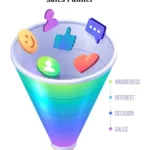
Introduction – Marketing Strategy for Small Businesses
As a small business owner, you understand the importance of effective marketing strategies in order to grow and succeed in a highly competitive market. In today’s digital age, where online presence is crucial, it’s essential to have a comprehensive marketing plan that can outrank other websites and attract potential customers to your business. In this article, we will guide you through the best marketing strategy for small businesses that will help you achieve higher visibility on Google and drive more traffic to your website.
Marketing Strategy for Small Businesses
Understanding Your Target Audience
The first step in developing a successful marketing strategy is to understand your target audience. Conduct thorough market research to identify your ideal customers’ demographics, interests, and pain points. This will allow you to tailor your marketing efforts to meet their specific needs and preferences.
Developing a Strong Brand Identity
A strong brand identity sets you apart from your competitors and establishes trust and credibility with your audience. Invest time and effort into creating a compelling brand story, a unique value proposition, and a visually appealing brand image. Consistently communicate your brand’s message across all marketing channels to reinforce brand recognition and recall.
Marketing Strategy for Building an Optimized Website
To outrank other websites on Google, your small business needs a well-optimized website. Ensure your website is fast, user-friendly, and mobile responsive. Conduct thorough keyword research to identify relevant and high-volume keywords that your target audience is searching for. Incorporate these keywords strategically into your website’s meta tags, headings, content, and image alt texts to improve your organic search rankings.
Creating Valuable Content
Content is king when it comes to ranking high on Google. Develop a content marketing strategy that focuses on creating valuable, informative, and engaging content for your target audience. Publish blog posts, articles, videos, and infographics that address their pain points and provide solutions. Optimize your content with relevant keywords and make it shareable across social media platforms to increase its reach and visibility.
Harnessing the Power of Social Media
Social media platforms provide an excellent opportunity to connect with your audience on a personal level and promote your small business. Identify the social media channels where your target audience is most active and create engaging content tailored to each platform. Encourage social sharing and actively participate in conversations to build a loyal community of followers and brand advocates.
Leveraging Email Marketing
Email marketing remains one of the most effective strategies to nurture leads and drive conversions. Build an email list by offering valuable incentives such as exclusive content, discounts, or free resources. Segment your email list based on the recipients’ interests and preferences to deliver personalized and targeted messages. Craft compelling subject lines and optimize your emails for mobile devices to ensure higher open and click-through rates.
Implementing Search Engine Optimization (SEO)
To outrank your competitors on Google, a solid SEO strategy is crucial. Conduct comprehensive keyword research and optimize your website’s on-page elements, including titles, meta descriptions, URLs, and headers. Build high-quality backlinks from reputable websites in your industry to increase your domain authority. Regularly monitor your website’s performance using analytical tools and make data-driven optimizations to improve your search rankings.
Embracing Online Advertising
Online advertising, such as pay-per-click (PPC) campaigns, can significantly boost your online visibility and drive targeted traffic to your website. Use platforms like Google Ads and social media advertising to create targeted campaigns that reach your ideal customers. Continuously monitor and optimize your ads to maximize their effectiveness and ensure a high return on investment (ROI).
Monitoring and Analytics
Regularly monitor and analyze your marketing efforts to measure their success and identify areas for improvement. Utilize tools like Google Analytics to track website traffic, user behavior, and conversion rates. Analyze the data to gain insights into your audience’s preferences and adjust your marketing strategy accordingly.
Conclusion
By following the best marketing strategy for small businesses outlined above, you can position your business for success and outrank other websites on Google. Remember to continuously adapt and evolve your marketing efforts based on market trends and customer feedback. With dedication, persistence, and a well-executed marketing plan, your small business can thrive in today’s competitive landscape.
LIKE WHAT YOU’RE READING?
CHECK OUT SOME OF OUR OTHER GREAT CONTENT HERE:
- MARKETING MANAGER ROLES AND RESPONSIBILITIES
- DEFINITION OF B2C MARKETING WITH EXAMPLE
- CONTENT MARKETING STRATEGIES FOR SMALL BUSINESSES
- DEFINITION OF MARKETING MANAGEMENT
- ROLE OF BLOGS IN MARKETING
- UNDERSTANDING DIGITAL MARKETING
- WHAT IS AFFILIATE MARKETING? (HOW TO GET STARTED)
- PERFORMANCE MARKETING – A BEGINNER’S GUIDE
- EFFECTIVE BRANDING METHODS
- UNDERSTANDING CONSUMER BEHAVIOR
- HOW TO INCREASE SALES?
- HOW AI IS USED IN DIGITAL MARKETING?
- 5 BEST SOCIAL MEDIA PLATFORMS FOR BUSINESS IN 2022
- WHAT IS THE DEFINITION OF ECOMMERCE
- ROLE OF SOCIAL MEDIA IN MARKETING
- WHAT IS ZERO-BASED BUDGETING
- DECODING DIRECT MARKETING WITH EXAMPLES
- 5 BEST TOOLS FOR DIRECT MARKETING WITH ADVANTAGES IN DETAIL
- WHAT IS A MARKETING RESEARCH?
- 6 STEPS OF COMPETITION ANALYSIS IN MARKETING




4 Comments